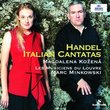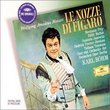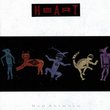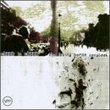| All Artists: George Frideric Handel, Antonio Vivaldi, Giulio Caccini, Wolfgang Amadeus Mozart, Franz Schubert, Pauline Viardot, Hector Berlioz, Vincenzo Bellini, Gaetano Donizetti, Gioachino Rossini, Umberto Giordano, Xavier Montsalvatge, Georges Bizet, Sonatori de la Gioiosa Marca, Cecilia Bartoli, Jean-Yves Thibaudet Title: Cecilia Bartoli - Live in Italy / Jean-Yves Thibaudet Members Wishing: 0 Total Copies: 2 Label: Decca Release Date: 10/20/1998 Genres: Special Interest, Pop, Classical Styles: Vocal Pop, Opera & Classical Vocal, Historical Periods, Baroque (c.1600-1750), Classical (c.1770-1830) Number of Discs: 1 SwapaCD Credits: 1 UPCs: 028945598123, 028945598147 |
Search - George Frideric Handel, Antonio Vivaldi, Giulio Caccini :: Cecilia Bartoli - Live in Italy / Jean-Yves Thibaudet
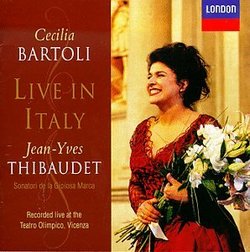 | George Frideric Handel, Antonio Vivaldi, Giulio Caccini Cecilia Bartoli - Live in Italy / Jean-Yves Thibaudet Genres: Special Interest, Pop, Classical
In the beginning, Cecilia Bartoli seemed to do one thing better than anybody, i.e., Rossini arias, which would not guarantee a long career even for a singer of her ebullience. This live performance from the Teatro Olympico... more » ![header=[] body=[This CD is available to be requested as disc only.]](/images/attributes/disc.png?v=15401716) ![header=[] body=[This CD is available to be requested with the disc and back insert.]](/images/attributes/disc_back.png?v=15401716) ![header=[] body=[This CD is available to be requested with the disc and front insert.]](/images/attributes/disc_front.png?v=15401716) ![header=[] body=[This CD is available to be requested with the disc, front and back inserts.]](/images/attributes/disc_front_back.png?v=15401716) |
Larger Image |
CD DetailsSynopsis
Amazon.com essential recording In the beginning, Cecilia Bartoli seemed to do one thing better than anybody, i.e., Rossini arias, which would not guarantee a long career even for a singer of her ebullience. This live performance from the Teatro Olympico in Vincenza, Italy, shows how much she's expanded, both linguistically and musically. The first five selections reflect her newfound specialty, early opera. The three Caccini selections from the 17th century--accompanied by small string ensemble--are deeply felt and stylistically convincing enough to make one eager for future forays. She's guilty of spinning out Handel's "Lascia la spina" excessively but hits new heights of virtuosity in Vivaldi's "Agitata da due venti." The rest of the disc is for voice and piano, in a program including both some genuine discoveries by French composer Pauline Viardot-Garcia that reveal the singer's increasing emotional depths and less consequential ones by Donizetti and Rossini. Bartoli also sings Spanish songs, most notably Montsalvatge's "Canto negro," proving that the singer doesn't venture into a new language until she can truly feel in it. Remarkably, her voice maintains its strength and body in the deeper, mezzo-ish regions as well as in the high, soprano-range areas. Might she have two voices? --David Patrick Stearns Similarly Requested CDs
|
CD ReviewsCecilia Live stardustraven | Europe | 07/12/2002 (4 out of 5 stars) "I have loved her low and warm voice ever since the first time I listened to her, the Italian mezzo-soprano Cecilia Bartoli. With respect and tenderness she treats the composers, whose works she performs while adding her own dimension. She transports me with her art. It is as if we become one person, and I experience her joy of music. Together we share a glimpse of eternity. On this album which was recorded live at the Teatro Olimpico, Vicenza, Italy in 1998 Cecilia Bartoli offers her listeners a varied programme comprised of several composers: Caccini, Haendel, Vivaldi, Mozart, Rossini, Donizetti, Bellini, Viardot, Schubert, Montsalvatge and Bizet. She's accompanied in Caccini, Haendel and Vivaldi by the Sonatori de la Gioiosa Marca (Baroque string ensemble) and for the other pieces by Jean-Yves Thibaudet on piano. The accompanying booklet contains the lyrics, translations and further information. Ms. Bartoli certainly has expanded her musical horizons here in several ways. On this disc she sings in Italian, French and Spanish. I loved her intense and heartfelt rendition of Caccini's and Haendel's arias. The passionate acrobatics of Vivaldi. And the Sonatori de la Gioiosa Marca gave her a fine support. She made a warm and lovely Cherubino in Mozart's famous 'Voi che sapete'. I also loved her sparkling interpretations of Viardot's 'Havanaise', Rossini's 'Mi lagnero tacendo' or his 'Canzonetta spagnuola'. But Montsalvatge's 'Canto negro' made me feel definitely uncomfortable and Ms. Bartoli herself didn't connect with it. Although I liked her rendition of Bizet's 'Seguedille, I still missed something there. Jean-Yves Thibaudet lends her an excellent, attentive and expressive support. Although I would have preferred some more Baroque pieces at this concert, this live album is a keeper for me. Everytime the bundle of pure joy that is Cecilia Bartoli has the power to move me deeply!" Evening of DELIGHT stardustraven | 05/24/1999 (5 out of 5 stars) "In brief, I found I was thrilled with the overall performance. Being a singer myself, and one who does sing this type of music, I did see some weaknesses that are starting to creep in -- a strange breathiness of tone in the piano notes, and a developing weakness in the middle range ( stretching too much for the beautiful, but unneeded top E flat in "Riedi al sogio" ). However, I did enjoy the intellegence behind the interpretations. The only numbers that really disappointed were: "Canto negro" and "the Seguedille" from Carmen. The first was simply an ugly piece which Bartoli's voice couldn't correct, and the second was simply unimpressive. As wonderful as she may be on stage, a Carmen she is not, at least not yet. However, for me, I will accept a few "bad notes" if the musical truth comes through and I am moved. I was moved! No performance and no performer are perfect, but when they move the innermost reaches of the soul, well, they have succeeded. Bartoli moves me, and thrills me. Is this her best album, perhaps not, but it is live and assumed "unedited." It gives a flare not always found in studio albums. And in closing, not all of the glory can go to her alone. Her accompanists ( the orchestra and particular the pianist, Jean-Yves Thibaudet ) deserve great appreciation. Poor accompaniment can kill even the greatest artist's creations, great accompaniments give an undesputed seal of finesse to a dedicated artist's performance. I whole heartedly recommend it, even if only for the evident joy radiated by the performers." Exquisite Rebecca Johnson | Washington State | 01/31/2003 (5 out of 5 stars) ""Her natural command of messa di voce phrasing, willingness to shade the voice away to the quietest pianissimo and acute sensitivity to the words of Caccini's love songs proved irresistible, attracting a generous mix of applause and foot stamping."
Such was the appreciation from the audience that the director had to request that the audience not stamp their feet as they would set off the alarm system. There are hardly words to describe Cecilia Bartoli's remarkable vocal qualities, emotional range and warmth. When I listen to this CD, I am calmed completely. There is an element of comfort in her style. Maybe one could explain it as a lullaby for the soul. She has the ability to support the longest of phrases on the back of a single breath all while varying the tone color and dynamic level. Singing seems as effortless as breathing as she becomes emotion all while capturing the drama and mood. In this live performance from the Teatro Olympico in Vincenza, Italy, she performs each piece as if she is intimately entwined with the notes. How can music be this sensual and this comforting all at once? It just is. She can express a wide range of emotions, from profound despair to extreme joy. The Teatro Olimpico is the worlds' oldest surviving covered theatre. It has fine acoustics, a sky-blue ceiling and marble. Cecilia Bartoli wanted to perform in one of the great treasures of Italy's cultural heritage and this led to this live performance with concert pianist Jean-Yves Thibaudet who seems to sense every emotion in Cecilia's voice. It is a sublime combination of talent which is further enhanced by violins, viola, cello, violone, archlute and harpsichord. Tu ch'hai le penne, Amore - A song to love asking love to fly to where the heart lies and to promise that his heart and soul were ever hers. Amarilli - Delicate and beautiful expression of true love. Al fonte, al prato - You can feel spring approaching and this song has a certain energy Cecilia embraces as she sings away troubles and sadness to allow in merriment. Lascia la spina - Melancholy. "Old age will creep up on you when your heart does not expect it." Agitata da due venti - Cecilia's voice takes flight in this song about waves raging in a stormy sea. She almost becomes the force of the ocean as her voice surges and dives and wow. Oiseaux, si tous les ans, K307 - She embodies a haunting vulnerability and the freshness of spring/summer. This song ends far too quickly. La pastorella, D528 - Calm beauty to reflect a shepherdess in a meadow. Innocent love. Havanaise - It seems like she has a completely different voice in this song as she reaches to new ranges in depth. Charmed by a song? Perhaps. Hai luli! - A seductive treatment of a song asking "where can my love be?" "What's the point of living without a lover?" Zaide - High energy and fast paced. A song about an orphan. Malinconia, ninfa gentile - Gorgeous and poetic song. Ma rendi pur contento - She really captures longing and an almost delicate purity. La conocchia - Light and breezy. Me voglio fa 'na casa - A song about the desire to build a house surrounded by the sea. Fantasy and happiness. Mi langero tacendo - Poignant moment. "I shall not complain of my bitter fate; but, my beloved, do not hope for me not to love you." Mi lagnero tacendo ll resentimento - the sorrow continues. The lover is said to be cruel. Mi lagnero tacendo Sorzico - more complaints of cruelty and sorrow. She seems to capture frustration so exquisitely and is that stomping I hear? ;) L'Orpheline du Tyrol - The Tyrolean orphan girl. Jean-Yves Thibaudet really takes the stage at first and Cecilia follows almost timidly. A song of tragedy, hunger and suffering. Riedi al soglio from Rossini's opera Zelmira left seasoned connoisseurs dazzled. After the aria's final cadence, they broke from their awe-struck silence to add to the shouts of "encore." Voi che sapete - Light and yet still dramatic. Desire, torment, ice. All explored fully by her voice. You can hear "torment" when she sings "martir" even if you could not see the words or follow along. Her voice really "flutters" when she sings "palpito e tremo." It is just amazing. Canzonetta spagnuola - A muse comes to torment a painter. Caro mio ben - A lover grows faint without love. Solitary melodies and you can almost feel the chill in the room or the feeling of despair the lover feels. Canto negro - Is there anything she can't sing? This piece might seem completely out of place, but by now everyone is completely drunk with emotion from this performance. Seguidille - Pleasure comes when two people are together. Definitely so when Cecilia Bartoli and Jean-Yves Thibaudet perform together. This song is almost a metaphor of the entire intoxicating experience. I just love how the audience goes absolutely wild after this song. And too soon, it is over. I look forward to one day viewing the performance on DVD. It will be so much easier to understand the words now that I've literally studied this performance. Knowing the words definitely adds to the subtle emotions and more expressive moments. ~The Rebecca Review" |

 Track Listings (24) - Disc #1
Track Listings (24) - Disc #1